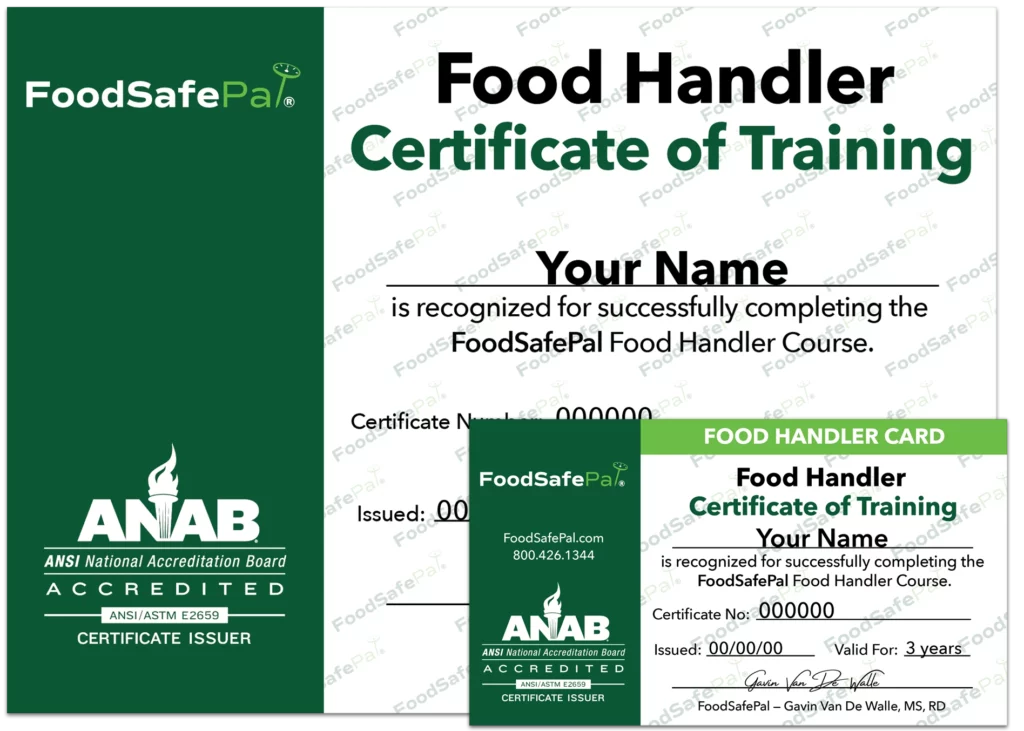Do You Need a Food Handlers Card to Sell Baked Goods?
Homemade — or cottage food — businesses are becoming increasingly popular among people who love to cook or bake and want to share their skills with others while also making some money.
And there is an increasing demand for baked goods and other cottage foods due to consumers’ interest in the origins of their food and the growing prevalence of farmers’ markets.
However, if you have interest in producing and selling baked goods, you may wonder whether you need food safety training to earn a food handler card.
This article explains whether you need a food handlers card to sell baked goods, and if so, how to earn one to stay compliant with your state’s cottage food laws.

What is a food handlers card?
A food handlers card — also known as a food handlers certificate — proves that you have completed a course on important food safety topics.
Food handler courses teach you how to identify and prevent food hazards — whether chemical, physical, or biological — that lead to foodborne illnesses or food poisoning.
They cover topics like:
- handwashing
- good personal hygiene
- time and temperature controls
- cross-contact and cross-contamination prevention
- cleaning and sanitizing procedures
Many states and counties require employees at food establishments like restaurants, markets, convenience stores, and food trucks to take a food handler course and earn a food handler card.
These same states and counties also require that kitchen workers at daycares, schools, and healthcare facilities earn a food handler card.
In places where there is no state or local law for food handler training, many food establishments still require their workers to earn a food handler card to keep their customers safe from foodborne illnesses, and prevent legal action in the case of a foodborne illness outbreak.
Summary
A food handler card proves that you have completed a course on basic food safety topics, such as handwashing, cross-contamination prevention, and cleaning and sanitizing procedures.
Food safety training requirements for cottage food businesses
Each state has its own laws when it comes to cottage food businesses.
These laws dictate the types of homemade foods you can produce and sell as well as how much and to whom you can sell.
These laws also determine whether you need any food safety training before operating a cottage food business.
Although cottage food businesses aren’t generally inspected like commercial food establishments, and therefore aren’t subject to the same regulations, many states still require food safety training before operating a cottage food business.
Here are the states that require food safety training to produce and sell baked goods:
- Alabama
- Arizona
- California
- Colorado
- Connecticut
- Delaware
- Georgia
- Hawaii
- Indiana
- Iowa
- Maryland
- Nebraska
- New Mexico
- Rhode Island
- Texas
- Virginia
South Dakota and Oregon only require food safety training to produce and sell time-temperature control for safety (TCS) foods or canned goods.
TCS bakery products include items like cheesecakes, trifles, mousses, and anything with whipped cream.
Nearly all the states requiring food safety training to operate a cottage food business require that you complete an ANSI-National Accreditation Board (ANAB)-accredited food handler training course or a state-approved program.
Even if you don’t live in a state that requires food safety training to sell baked goods and other approved items like coffee beans, some counties may still require it.
Therefore, it’s wise to complete an ANAB-accredited food handler training course regardless of your location if you want to sell baked goods or other cottage food items.
Summary
Nearly half of all states require food safety training before selling baked goods as a cottage food operator. Most of the states only recognize ANAB-accredited food handler training courses to meet this requirement.
How to earn your food handler card to sell baked goods
Most states only recognize ANAB-accredited food handler course like FoodSafePal’s to sell baked goods and other approved foods.
Fortunately, you can easily complete the training and earn your food handler card or certificate online in under two hours.
To get started, enroll with an ANAB-accredited food handler training provider like FoodSafePal.
Earn or Renew Your Food Handler Card in 90 Minutes
Trusted by thousands. The fastest, most reliable way to meet your health department’s requirements.

After enrolling, you can start right away.
Because food handler courses are designed for food establishments, some of the topics will not be relevant to you as a cottage food operator.
However, you still must pay close attention as you go through the course so you can pass the test at the end.
FoodSafePal’s Food Handler training consists of 40 multiple-choice questions, and you need to answer at least 28 (70%) correctly to pass.
After earning your food handler card and certificate, you can download or print it.
In many instances, you will need to provide a copy as part of the application process with the state to sell baked goods.
Most food handler cards are good for three years, but you may need to renew sooner depending on your location to continue to sell baked goods.
Summary
To earn your food handlers card to sell baked goods, enroll with an ANAB-accredited online training provider — like FoodSafePal —complete the course, and pass the test.
The bottom line
Homemade or cottage food businesses are becoming increasingly popular.
Each state has its own cottage food laws, but most require ANAB-accredited food handler training or a state-approved course.
To earn your ANAB-accredited food handler card to sell baked goods, enroll with a valid online training provider like FoodSafePal, complete the training, and pass the test.
Earn or Renew Your Food Handler Card in 90 Minutes
Trusted by thousands. The fastest, most reliable way to meet your health department’s requirements.

Most food handler cards are good for three years from the issuance date.






